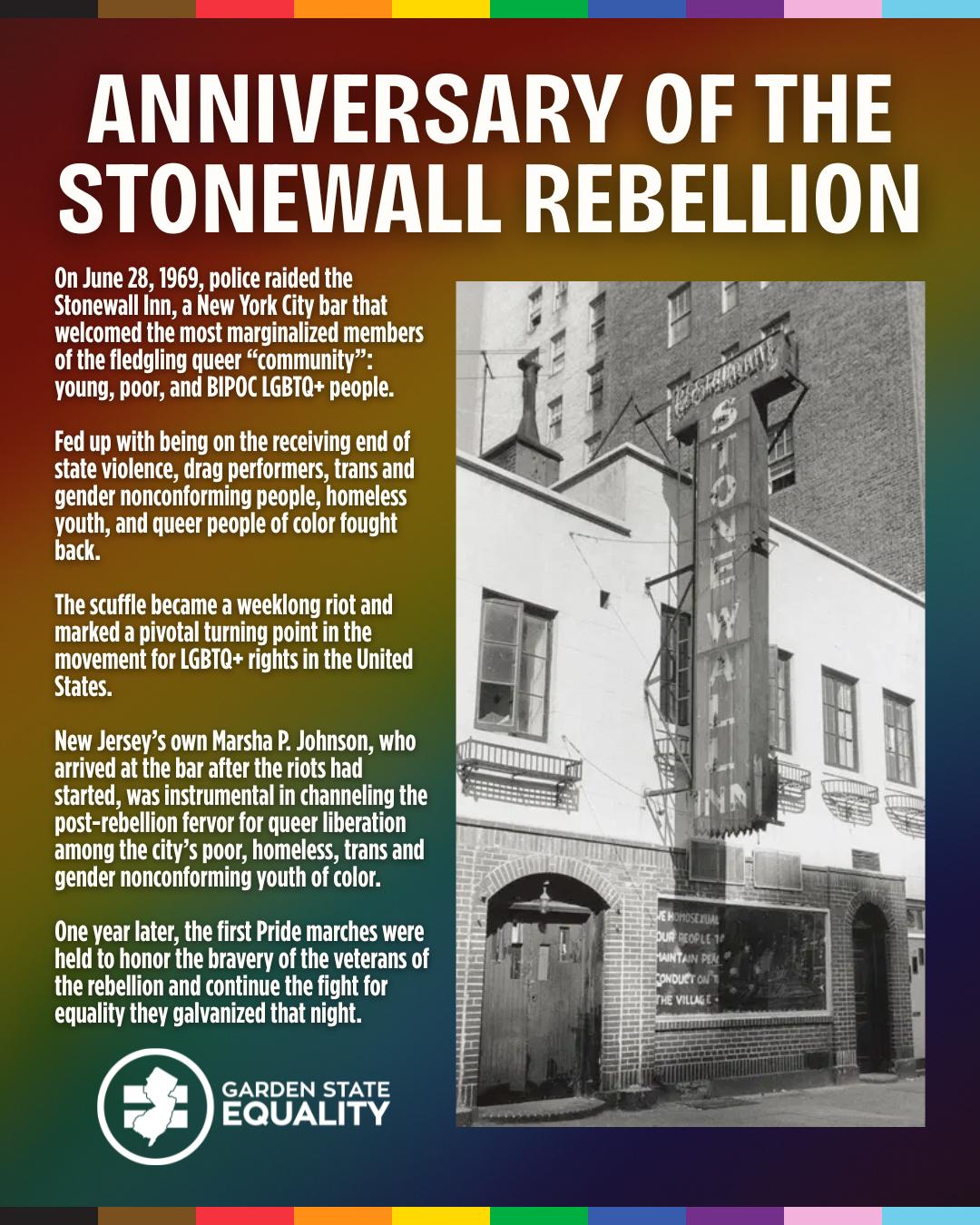Black & white photo of the Stonewall Inn in NYC back in the day with the following text overlaid:
ANNIVERSARY OF THE STONEWALL REBELLION
On June 28, 1969, police raided the Stonewall Inn, a New York City bar that welcomed the most marginalized members of the fledgling queer "community": young, poor, and BIPOC LGBTQ+ people.
Fed up with being on the receiving end of state violence, drag performers, trans and gender nonconforming people, homeless youth, and queer people of color fought back.
The scuffle became a weeklong riot and marked a pivotal turning point in the movement for LGBTQ+ rights in the United States.
New Jersey's own Marsha P. Johnson, who arrived at the bar after the riots had started, was instrumental in channeling the post-rebellion fervor for queer liberation among the city's poor, homeless, trans and gender nonconforming youth of color.
One year later, the first Pride marches were held to honor the bravery of the veterans of the rebellion and continue the fight for equality they galvanized that night.
From Garden State Equality
